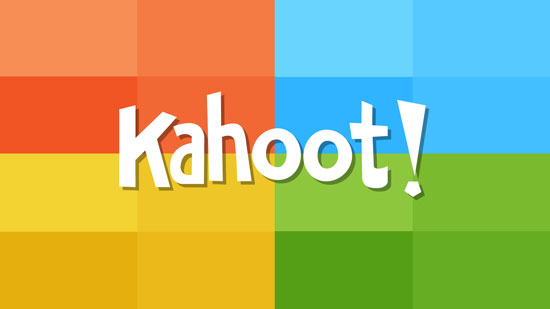1. Watch
Kahoot! is a free game-based classroom response system which offers educators an engaging way to test the learning and knowledge of their students/learners.
3 Reasons to use Kahoot! in the Classroom:
- Kahoot! makes learning interactive and fun . . . and encourages engagement even from Adults!
- Kahoot! can be adapted to a wide variety of subjects and languages.
- Teacher and trainers the world over recommend Kahoot! not only for its pedagogic potential but also because it is very simple to set up and navigate the teacher’s side meaning that they are much more likely to use it on a daily/weekly basis
Here are just a few of the possibilities with Kahoot!:
- Tap into learners competitive natures, they can play against each other, in teams or against their own past scores
- Assess understanding. It works great for assessing where learners might be missing a concept or content.
- Zero in on the needs of individuals. You can get detailed reports of which learner missed which questions
- Pre-assessment to gauge the level of knowledge on a topic in the room
- Post-exercise to gauge the understanding of new concepts
- Peer to peer learning – get learners to create Kahoots for their class mates and explain their questions/answers
2. Read

Interested in finding out more about Kahoot and how you can use it your class or lecture room? We have completed a pedagogic assessment of this tool which details its strengths and weaknesses based on its potential for innovative teaching strategies.
3. Learn From Others
We collected and created some exemplar videos which include tutorials, case studies of educators using this tool and more. Click to watch and learn.
playlistId parameter cannot be found.
4. Get Started with Kahoot
How to get started: “Go to getkahoot.com and create a free account. You can search the public quiz games or create one of your own. After you’ve created an account, launch a game and then have students input the unique pin at kahoot.it.
Step 1: Create your first Kahoot!
- Log in to create.kahoot.it and click Quiz, Discussion or Survey
Step 2. Add a description, tags and cover image
Adding a good description helps you define learning objectives for the game and keep it focused. Using descriptive #tags will ensure other people can find it easily. A great cover image helps the kahoot stand out and attract more players
Step 3. Create the learning game by adding questions, answers and imagery
- Follow the instructions on-screen to add questions, answers, images and video clips. You can also fine-tune the kahoot using different timer and points settings or setting multiple correct answers
Check out the Kahoot! get started guide for more! – https://files.getkahoot.com/academy/Kahoot_Academy_Getting_Started_Guide_2nd_Ed_-_June_2016.pdf
5. Action –be inspired and use Kahoot! for much more than formative assessment and reviews
Now that you know all about Kahoot – here are some more advanced ways you can use it in your class or lecture room.
Introduce a new concept or topic
Rather than doing a quick assessment, many Kahooters throw away PowerPoint and play a game to introduce new information at the start of a topic – often spending a whole lesson Kahooting. A game would typically consist of around 5 questions, each one building up a narrative around a specific concept or topic with explanatory photography, video or diagram embedded. After each question, discuss the why? – you will likely spend 10 minutes debating each one!
Kahoot! calls this approach Blind Kahooting
Reinforce knowledge
We often hear our community say “My students begged for more!”. By turning on the ‘Randomise order of questions?’ and ‘Randomise order of answers in questions?’ options on the orange launch screen at the start of a game, you can reinforce learning by playing the same Kahoot multiple times! This ensures the focus is on the right/wrong answers rather than remembering the placement of the correct one(s).
If you’ve previously introduced a new topic with a Kahoot, why not play the same game again to reinforce knowledge?
Challenge learners to make their own Kahoots
Kahoot! is avidly promotes a pedagogy they call ‘Learners to Leaders’ pedagogy which encouraged students to make their own Kahoots to challenge the class or play against one another outside of school. They suggest that the teacher/tutor you gets things started by initiating deep research and critical thinking on the subjects that inspire them the most! This allows you to play their game, and watch them become leaders as they discuss topics most important to them.
Want to learn more about Blind Kahooting and Learners to Leaders? Check out this great Kahoot! Pedagogu guide: https://files.getkahoot.com/academy/Kahoot_Academy_Guide_1st_Ed_-_March_2016.pdf?utm_source=getting_started_pdf&utm_medium=pdf&utm_content=Resources&utm_campaign=Teachers_Getting_Started


